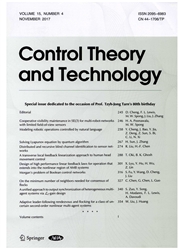

 中文摘要:
中文摘要:
Thien NGUVEN is a Ph.D. candidate in the Quantum Cybernetics group at the Australian National University. Prior to enrolling at the ANU, he worked for three years as a Quality Engineer for Intel Corporation. He received the B.Sc. degree in Electrical Engineering from Portland State University, Oregon, U.S.A. in 2011, while being an Intel Scholarship recipient. His current research interests include quantum computer architecture, quantum error correction and quantum control. He was the Grand Prize winner of the 2016 Microsoft Quantum Challenge. E-mail: thien.nguyen@anu.edu.au. Zibo MIAO received the B.Eng. degree in Automation from the Honors School, Harbin Institute of Technology, Harbin, China, in 2011. He received the Ph.D. degree in Quantum Cybernetics from the Australian National University, Canberra, Australia, in 2015. He was successful in receiving special funding from the Australian Academy of Science to undertake research in the United States in 2014-2015. In 2015-2016, he was a research fellow with the Department of Electrical and Electronic Engineering, University of Melbourne, Parkville Campus, Melbourne, Australia. Currently, he is a postdoctoral research fellow with the QUANTIC team, INRIA Paris, France. He was selected as Student Best Paper Finalist in the 2015 American Control Conference. His current research interests include quantum engineering, optimal control and stochastic control. E-mail: shenwum@gmail.com. Yu PAN received the Ph.D. degree from the Academy of Mathematics and Systems Science, Chinese Academy of Sciences, 2012. Before that, he received a B.Sc. degree in Mathematics and Applied Mathematics from Sichuan University. From 2012 to 2015, he was a research fellow in the College of Engineering at the Australian National University, Canberra. He was a research associate in the School of Engineering and Information Tech- nology, at University of New South Wales, Canberra from 2015 to 2016, and a postdoctoral fellow at the Hong Kong Polytechnic University in 2016. He has joined the
 同期刊论文项目
同期刊论文项目
 同项目期刊论文
同项目期刊论文
 期刊信息
期刊信息
